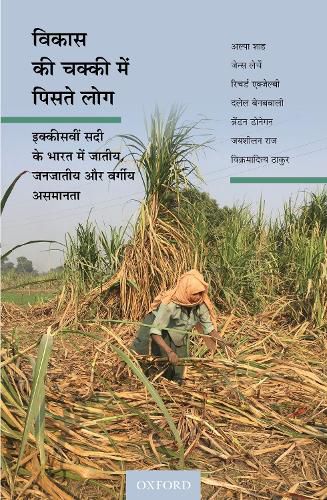Readings Newsletter
Become a Readings Member to make your shopping experience even easier.
Sign in or sign up for free!
You’re not far away from qualifying for FREE standard shipping within Australia
You’ve qualified for FREE standard shipping within Australia
The cart is loading…






Why has India’s astonishing economic growth not reached the people at the bottom of its social and economic hierarchy? Travelling the length and breadth of the subcontinent, this book shows how India’s ‘untouchables’ and ‘tribals’ fit into the global economy. India’s Dalit and Adivasi communities make up a staggering one in twenty-five people across the globe and yet they remain amongst the most oppressed. Conceived in dialogue with economists, ‘Ground Down by Growth’ reveals the impact of global capitalism on their lives. It shows how capitalism entrenches, rather than erases, social difference and has transformed traditional forms of identity-based discrimination into new mechanisms of exploitation and oppression. Through studies of the working poor, migrant labour, and the conjugated oppression of caste, tribe, region, gender, and class relations, the social inequalities generated by capitalism are exposed.
$9.00 standard shipping within Australia
FREE standard shipping within Australia for orders over $100.00
Express & International shipping calculated at checkout
Why has India’s astonishing economic growth not reached the people at the bottom of its social and economic hierarchy? Travelling the length and breadth of the subcontinent, this book shows how India’s ‘untouchables’ and ‘tribals’ fit into the global economy. India’s Dalit and Adivasi communities make up a staggering one in twenty-five people across the globe and yet they remain amongst the most oppressed. Conceived in dialogue with economists, ‘Ground Down by Growth’ reveals the impact of global capitalism on their lives. It shows how capitalism entrenches, rather than erases, social difference and has transformed traditional forms of identity-based discrimination into new mechanisms of exploitation and oppression. Through studies of the working poor, migrant labour, and the conjugated oppression of caste, tribe, region, gender, and class relations, the social inequalities generated by capitalism are exposed.